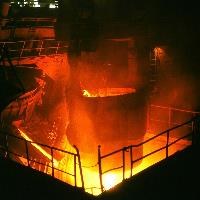(STRASBOURG) – In a swift reaction to what it claims is unfair competition, the EU Commission imposed Friday provisional anti-dumping duties on imports of hot-rolled flat steel and heavy plates of steel from China.
The measures come five weeks ahead of the procedural deadline, and in the case of hot-rolled steel, the imposition of duties results from an investigation initiated before the dumping-related damage has materialised.
The measures concern hot-rolled flat steel and heavy plates of steel and come almost five weeks ahead of the procedural deadline. In the case of hot-rolled steel, the imposition of duties results from an investigation initiated even before the dumping-related damage could materialise, based on the so called “threat of injury”. As for the heavy plates, imports are subject to registration since August and duties can be applied retroactively at the definitive stage.
Hot-rolled steel is the primary material for the production of various value-added downstream steel products, starting with cold-rolled steel products. It is used as an industrial input purchased by end users for a variety of applications, including in construction (production of steel tubes), shipbuilding, gas containers, pressure vessels and energy pipelines.
Heavy steel plates have a large range of applications across the economy, including in shipbuilding, buildings, bridges, wind towers, pressure vessels, pipelines, oil platforms and heavy equipment, such as earthmovers and graders.
Commission investigations confirmed that the Chinese products had been sold in Europe at heavily dumped prices. To provide EU companies with necessary breathing space, the Commission imposed duties ranging between 65.1% and 73.7% for heavy plates and 13.2% and 22.6% for hot-rolled steel. This should, it says, restore the profitability of the European heavy plates’ producers and prevent damage to the companies involved in the production of hot-rolled steel products.
The Commission now has to decide within six months whether to reconfirm these measures for the period of the coming few years. It will also then be able to decide whether to retroactively collect the duties on heavy steel plates imported from China between August and October 2016. This is possible thanks to an earlier registration of imports activated during the investigation period.
The EU currently has an unprecedented number of trade defence measures in place targeting unfair imports of steel products, with a total of 37 anti-dumping and anti-subsidy measures, 15 of which on products originating from China. 12 more investigations concerning steel products are still ongoing, two of which are being provisionally applied as of today.
The Commission has called again on China to set up a mechanism to monitor over-capacity and for the Global Forum on steel excess capacity, agreed at the last G20 summit, to become a reality, to increase information sharing and cooperation at global level.
While the EU is using trade defence instruments to restore a level-playing field for their industry in a situation of unfair trade practices, it is also putting into practice a plan set out in March this year to preserve jobs in the Europe’s steel sector in the current conditions of subsidy-induced overcapacity in global steel production.
Further information



